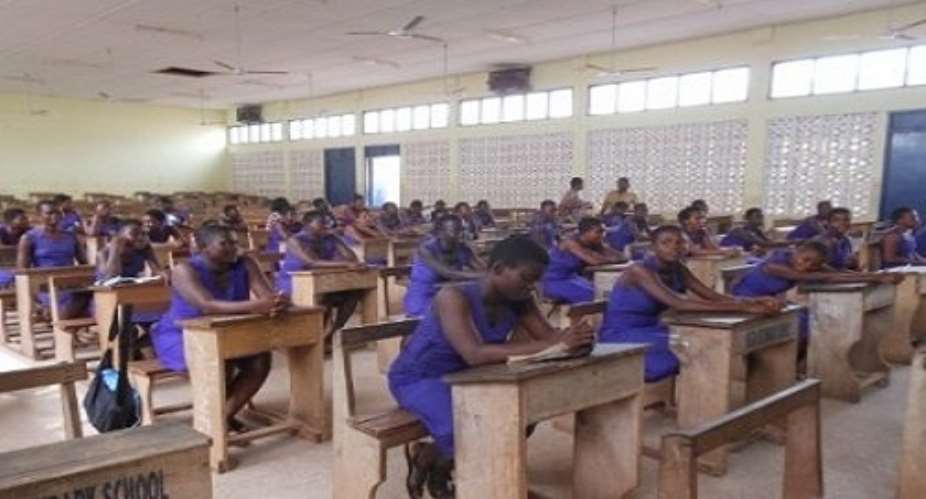An academic research I undertook (which shall be published very soon) tells me Senior High School (SHS) education is compulsory for every Ghanaian child if we want to reduce crime thereby reducing Prison Population in Ghana.
For the sake of Academic Ethics, I cannot go in details (since the work is not yet published by the institution) but I shall highlight some key findings to make my point.
The academic study focused on Prisons and Prisoners in Ghana specifically, Kumasi Central/Female Prisons.
The results showed that over sixty percent (60%) of prisoners in Ghana have their Educational Level up to Junior High School (JHS) level. This is followed by people who have no education or have education to the Senior High School Level.
I also find out that, people with higher education (Nursing Training Students/Professionals, Teacher Training Students/Professionals, Polytechnics, Technical Universities, and University Students/Professionals etc) are less likely to find themselves in prison. This is because, the total percentage of these group in prisons is less that 30%. The higher one climbs the educational ladder, the less likely he/she find him/herself in prison!
The age band 18-25 constitute over sixty percent (60%) of prison population. Members of this age band, if Senior High School education is free and accessible to everyone, are more likely to find themselves in school.
This means the youthful age who are less educated are mostly find in our prisons.
Interestingly once again, I also established that Stealing (as a crime) dominates the offences of inmates. This also suggests that, the youth who are uneducated engage in stealing activities leading most of them to prisons!
The discourse is long!
One may argue that, when more people are educated, it only change the face of crime from stealing to those such as cyber crime and the like. That argument, in as much as it can be true, cannot increase prison population at par to that of stealing as a crime.
From the study, it clearly tells us there is a close link between education and imprisonment!
I cannot go in details. When the work is finally published, I shall expatiate on this subject matter.
But for the meantime, all hands must be on deck when discussing issues concerning education as one way of reducing crime and solving the overcrowding nature of our prison centres. Long live Ghana.
©Gabriel Asante
Dept. Of History and Political Studies
KNUST-Kumasi
+233 245328155
[email protected]
SirGABI Behenase





 Lay KPMG audit report on SML-GRA contract before Parliament – Isaac Adongo tells...
Lay KPMG audit report on SML-GRA contract before Parliament – Isaac Adongo tells...
 Supervisor remanded for stabbing businessman with broken bottle and screwdriver
Supervisor remanded for stabbing businessman with broken bottle and screwdriver
 NDC watching EC and NPP closely on Returning Officer recruitment — Omane Boamah
NDC watching EC and NPP closely on Returning Officer recruitment — Omane Boamah
 Your decision to contest for president again is pathetic – Annoh-Dompreh blasts ...
Your decision to contest for president again is pathetic – Annoh-Dompreh blasts ...
 Election 2024: Security agencies ready to keep peace and secure the country — IG...
Election 2024: Security agencies ready to keep peace and secure the country — IG...
 People no longer place value in public basic schools; new uniforms, painting wil...
People no longer place value in public basic schools; new uniforms, painting wil...
 'Comedian' Paul Adom Otchere needs help – Sulemana Braimah
'Comedian' Paul Adom Otchere needs help – Sulemana Braimah
 Ejisu by-election: Only 33% of voters can be swayed by inducement — Global InfoA...
Ejisu by-election: Only 33% of voters can be swayed by inducement — Global InfoA...
 Minority will expose the beneficial owners of SML, recover funds paid to company...
Minority will expose the beneficial owners of SML, recover funds paid to company...
 Prof. Opoku-Agyemang has ‘decapitated’ the NPP’s strategies; don’t take them ser...
Prof. Opoku-Agyemang has ‘decapitated’ the NPP’s strategies; don’t take them ser...
